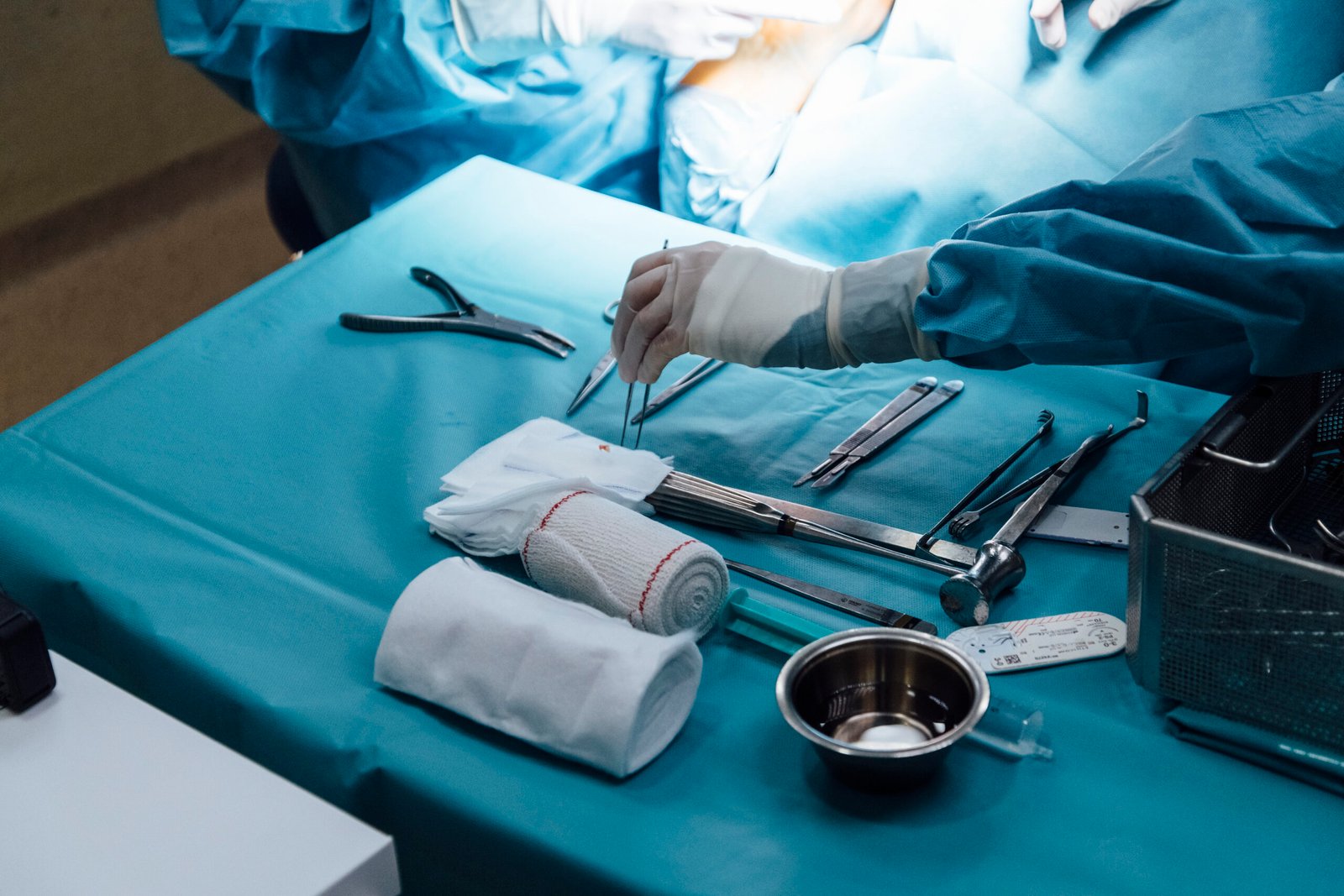
When it comes to aesthetic treatments, most people focus on the procedure itself, the skills of the practitioner, and the expected results. While these factors are undoubtedly crucial, there’s another vital aspect that often goes overlooked: lifestyle. The way you live your life—your habits, routines, and overall health—can significantly influence the success and longevity of your aesthetic outcomes.
Whether you’re considering a minimally invasive treatment or a surgical procedure, understanding the impact of lifestyle choices is essential. This article delves into how factors like diet, hydration, sleep, stress management, and skincare can make a difference, helping you get the most out of your aesthetic journey.
1. The Role of Skin Health in Aesthetic Treatments
Healthy skin is the foundation for almost every aesthetic treatment. Whether you’re opting for injectables, laser treatments, or surgery, the condition of your skin will influence how well your body responds to the procedure and how quickly you recover.
- Hydration: Dehydrated skin is more prone to dullness, flakiness, and reduced elasticity, which can affect the final outcome of treatments. Drinking plenty of water and using hydrating skincare products ensures your skin is supple and resilient.
- Nutrition: A diet rich in antioxidants, vitamins, and minerals supports skin health. Foods high in vitamin C, vitamin E, and omega-3 fatty acids can boost collagen production, reduce inflammation, and promote healing.
- Sun Protection: UV damage is a major culprit behind premature ageing, pigmentation, and reduced skin quality. Wearing sunscreen daily protects your skin from further damage and ensures your treatments aren’t undermined by harmful sun exposure.
Taking steps to maintain your skin’s health before and after a procedure can significantly enhance your results, making treatments more effective and longer-lasting.
2. Hydration: A Key to Healing and Results
Water plays an essential role in your body’s ability to heal and regenerate. Post-procedure, your body relies on proper hydration to reduce swelling, flush out toxins, and support the healing of tissues.
Dehydration, on the other hand, can slow down recovery and even exacerbate side effects like bruising or inflammation. Staying hydrated isn’t just about drinking water—it’s also about maintaining balanced electrolyte levels. Consuming foods with high water content, such as cucumbers, watermelon, and leafy greens, can complement your fluid intake.
3. The Importance of a Balanced Diet
Nutrition is a cornerstone of overall health, and it directly impacts your body’s ability to recover and maintain results after aesthetic treatments. A well-balanced diet doesn’t just support healing—it can also help prevent skin issues, maintain elasticity, and enhance your overall appearance.
- Protein: Essential for tissue repair and collagen production, protein-rich foods like lean meats, fish, beans, and nuts should be a staple in your diet, especially after surgical procedures.
- Antioxidants: Found in berries, dark chocolate, and green tea, antioxidants combat free radicals, reducing oxidative stress and inflammation.
- Healthy Fats: Omega-3 fatty acids in salmon, walnuts, and flaxseeds support skin hydration and elasticity.
- Sugar and Processed Foods: Excess sugar and refined carbs can accelerate skin ageing by breaking down collagen and elastin. Limiting these foods can help maintain the results of your treatments.
A diet tailored to your needs can enhance your aesthetic outcomes, ensuring your body has the resources it needs to heal and thrive.
4. How Sleep Affects Recovery and Longevity
The term “beauty sleep” isn’t just a cliché—sleep is one of the most important factors in the body’s healing and rejuvenation processes. During deep sleep, your body repairs tissues, produces growth hormones, and reduces inflammation, all of which are vital for recovery after aesthetic procedures.
- Sleep and Recovery: Lack of sleep can prolong recovery time, increase swelling, and exacerbate side effects like redness or bruising. Aim for 7–9 hours of quality sleep each night, especially in the days following your treatment.
- Elevating Your Head: For surgical procedures or treatments that involve swelling, sleeping with your head elevated can reduce fluid retention and promote healing.
- Stress Management Through Sleep: Poor sleep can increase stress levels, which may negatively impact your immune system and skin health. Establishing a bedtime routine that prioritises relaxation can have a profound impact on both your recovery and results.
5. Managing Stress for Optimal Results
Stress is a factor that can significantly influence aesthetic outcomes. High stress levels lead to increased production of cortisol, a hormone that breaks down collagen, accelerates ageing, and impairs healing.
- Mindfulness and Relaxation Techniques: Incorporating practices like meditation, yoga, or deep breathing exercises can reduce stress and promote overall wellbeing.
- Physical Activity: Regular, moderate exercise can improve circulation, boost mood, and support skin health. However, it’s important to avoid strenuous activities during the initial recovery period after certain procedures.
- Setting Realistic Expectations: Stress can also stem from anxiety about results. Having an open conversation with your practitioner about what to expect can help alleviate worries and set realistic goals.
By managing stress, you create a healthier environment for your body to heal and maintain the benefits of your aesthetic treatments.
6. The Link Between Smoking, Alcohol, and Aesthetic Outcomes
Both smoking and excessive alcohol consumption can negatively impact the results of aesthetic procedures.
- Smoking: Smoking constricts blood vessels, reducing oxygen flow to tissues and impairing healing. It also breaks down collagen and elastin, accelerating skin ageing. Avoiding smoking before and after treatments is crucial for optimal results.
- Alcohol: Alcohol dehydrates the body and can exacerbate swelling and bruising. Additionally, it can interfere with medications prescribed for recovery. Limiting alcohol intake is especially important in the days leading up to and following a procedure.
Quitting smoking and moderating alcohol consumption can have immediate and long-term benefits, not just for your aesthetic results but for your overall health.
7. Skincare as a Lifestyle Choice
Your skincare routine is an integral part of your lifestyle and directly impacts the effectiveness of aesthetic treatments. A well-maintained skincare regimen can prolong the results of procedures and keep your skin looking its best.
- Cleansing and Moisturising: Keeping your skin clean and hydrated helps maintain its barrier function, preventing dryness and irritation.
- Exfoliation: Gentle exfoliation removes dead skin cells, promoting a brighter complexion and better absorption of skincare products.
- Targeted Treatments: Incorporating serums or creams with active ingredients like retinol, hyaluronic acid, or peptides can address specific concerns and enhance your overall appearance.
Consistency is key when it comes to skincare, and partnering with your practitioner to choose the right products can help you achieve long-lasting results.
8. How Long-Term Habits Influence Results
Lifestyle choices don’t just affect the immediate aftermath of a procedure—they also determine how long your results will last. Maintaining a healthy weight, protecting your skin from the sun, and prioritising hydration are all factors that contribute to the longevity of your aesthetic outcomes.
For surgical procedures, avoiding significant weight fluctuations is particularly important, as these can alter the results of body contouring treatments. Similarly, maintaining a healthy diet and active lifestyle ensures your body continues to support and sustain the changes made during surgery.
Final Thoughts
When it comes to aesthetic treatments, lifestyle plays a much bigger role than many people realise. Your habits and choices—whether it’s how much water you drink, how well you manage stress, or the quality of your sleep—can influence how your body responds to treatments and how long the results last.
As a practitioner, my goal is not just to provide exceptional treatments but also to guide my patients toward choices that enhance and sustain their results. By taking a holistic approach to your care, we can ensure that your aesthetic journey is as effective and rewarding as possible.
Remember, aesthetic medicine isn’t just about the procedures—it’s about creating a lifestyle that supports your goals and allows you to feel confident and empowered every day.






